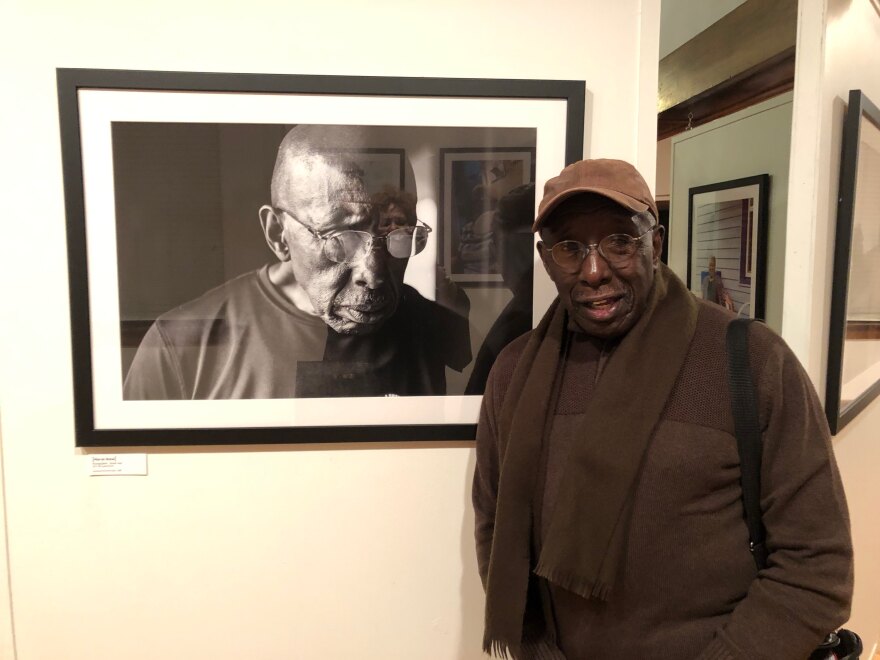Throughout his 87 years, Marvin Stone Jr. has witnessed the endless struggle for civil rights, both personally and as a former special investigator for the Kansas Commission on Civil Rights.
The native Wichitan says the racial injustice currently the focus of nationwide protests and news coverage isn't anything new. For KMUW's weekly show The Range, Stone recently reflected on his early experiences with police, racism, and his thoughts on the recent killing of George Floyd in Minneapolis.
On George Floyd
The only difference in George's incident is you can see it. Black people have been saying these things for years, that this happened to me ... and everybody just blew it off. But now that God has allowed technology to come to the forefront and you could actually see it, now everybody is starting to believe it.
People have been talking about this way back when, my father, grandfather, everybody else. Then we need to do something about that. So that’s why you have all these people out in the streets, Black, white, everybody all over the world. ... Now people see that and they are witness to it where before they just thought, "Oh, that’s not true, that wouldn’t happen," and now when it’s right there in your lap, you see that’s what’s been going on forever.
Race relationships in Wichita
Growing up was one of basically, I can say it now — I didn’t recognize it then — just oppression, that the police were in charge of everything.

The incident I remember is when I was about eight or nine years old, going to the grocery store and outside the grocery store, there were two policeman sitting in the car. One policeman [was] harassing me saying, “Come over here, what do you have in your pocket?” and I refused and I told him it was none of his business and went on my way into the store. The other white police officer was there said, “Leave him alone.” But those kinds of things make impressions on you on like eight or 10 years old. That was my introduction into my relationship with law enforcement, that they were allowed to do with impunity because nobody was going to do anything to them.
We had Black police officers who couldn’t arrest white people even down and around in our neighborhood. If they caught a white person who was acting crazy, they had to call down and have a white police officer come and get that person. Now, they could arrest us but that was not going to happen with a Black police officer arresting and handcuffing a white person.
On his experiences growing up
I graduated in 1951 from East High. Black students at East High, we had one day to swim in the swimming pool, one day a week. After using the swimming pool, they drained it. We didn’t understand it and we really didn’t take that much time to dwell on that but it was a hurtful thing.
I’ve had experiences with segregation growing up. My father had contracts with the movie theaters downtown, three theaters — The Wichita, The Palace and The Miller Theatre — and during that time, early in the morning, I’d go get my father pancakes and you weren’t supposed to sit down in these places where you would go but I sat down anyway and that was like early in the morning. White people would just look at me because I was like, I might have been in seventh or eighth grade. Nobody said anything, they just looked because I just hopped up on the seat and sat down and waited for them to get my father’s stuff together. So my whole life has been involved in this segregation thing and it’s just astounding that at this age we are still visiting the same kinds of conversation.
On sharing experiences with younger generations
We need the elders to speak to these young people about what has happened and how you made your way through it. Because there is a wealth of information from Black men from all over the country because whatever happened in California has happened in Wichita, whatever has happened in Portland has happened in Wichita. It’s all over the country. Black people just need to share that with the young people.
The marching and the protest is right on time 'cause people are waking up to what’s been going on that Black people already knew about. We have all of the young people who are coming out now who are very capable and I am happy to see them in communications and areas where they can put out information so that we can have a perspective.
My advice to any young person is to investigate. Read your history and understand what has happened before. Talk to your parents, your grandparents, any person in the community. Therein lies the wisdom. And let [younger people] know that … this just didn’t drop out of the sky. This has been going on forever, but they have to have the information. We need the elders to speak to these young people.
The song "I Can’t Breathe" is by Wichita singer/songwriter Roy Moye III.



